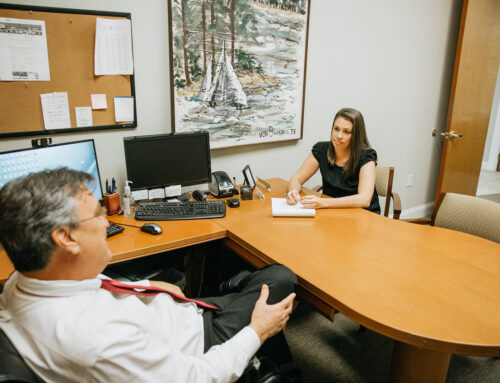Bankruptcy is often misunderstood. Because of that, you may be hesitant to consider it an option to get you out of your current financial crisis. But if you are overwhelmed with debt and creditors call you non-stop, you need help – fast. In this article, we will discuss some of the main facts bankruptcy attorneys wish people understood to regain financial stability.
1. You are not alone: Although U.S. personal bankruptcies were down in 2021 versus the previous two years, the courts still reported 473,349 filings. With rising inflation, experts expect that number to begin to rise again. In other words, you are far from alone should you need a legal remedy for your money problems. In fact, bankruptcy was created to help people such as yourself – so you should at least investigate to determine if it is the right solution.
2. There is nothing to be ashamed of: Many people avoid bankruptcy because they feel guilt, shame or embarrassment. But most bankruptcies are filed to address circumstances outside of the individual’s control, like an illness or a company-wide layoff. Very few bankruptcies are filed by those who were blatantly irresponsible. The process exists to help with unforeseen situations. Don’t feel bad that you need help.
3. You probably won’t get rid of all your debt: Student loans are one category that doesn’t get eliminated through bankruptcy, and alimony and child support are two others. That being said, the court can discharge most of your debt at the end of the bankruptcy process, putting you in a much better position financially to pay those remaining debts.
4. You shouldn’t move your assets: While you might think transferring an asset – such as a vehicle or a house – to another party before filing bankruptcy will protect it, the opposite may be true. If you move the ownership of an asset into someone else’s name without selling it for fair market value, the trustee assigned to your case can legally reverse the transfer and liquidate the asset during the bankruptcy process. There are laws in place that help to protect many personal assets during bankruptcy – and there is a good chance you can keep your home and car if you play by the rules.
5. Your life isn’t over: Some people assume their credit – and therefore their buying power – will be nonexistent once they file for bankruptcy. But many people purchase cars and property after bankruptcy. It may take some time and effort to build your credit score to the point it needs to be, but it can be done. Remember, the higher your credit score, the lower the interest rate. To keep yourself out of future trouble, stay diligent about sound financial practices, and you’ll be eligible for loans again.
6. It will take some time: Bankruptcy may be common, but that doesn’t mean it is easy and straightforward. Bankruptcy laws can be complicated, and you want to ensure that you are addressing all the issues of your case in the most productive way. Many documents and records are involved, such as tax returns, pay stubs, income statements, bank statements, and credit reports – and most of these need to be collected by you, not your attorney. Doing your homework ahead of time and having these documents prepared when you meet with an attorney can help speed the process along, but don’t get impatient if they take the time to guarantee the best outcome for you.
7. It’s not free: Maybe it doesn’t seem fair, but the process of getting out of debt will cost you some money. Still, the expenses are typically worth getting out from under the monthly, recurring debt you can no longer afford. Filing fees for new petitions for bankruptcy usually range between $300-350. You will be required to take – and pay for – credit counseling and a personal financial management course. There may also be additional minor expenses, such as filing fees or records retrieval.
Of course, working with a bankruptcy attorney will also cost you, but having professional guidance through the maze of financial and legal complexities involved in bankruptcy is highly recommended. If you try to file independently and do not meet all your filing and legal requirements, your case may be dismissed.
Your initial consultation with Richard V. Ellis, Sarasota bankruptcy attorney, is free, and you have nothing to lose in discussing your options. Call today to learn more about bankruptcy as a potential solution for you.





